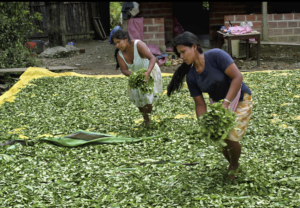The so called ‘war on drugs’ undermines economic justice. It creates and sustains poverty, whilst denying resources for welfare and public services.
Destroys livelihoods
When drug crops are eradicated, farmers can lose all of their income. This can make it hard or even impossible for them and their families to access healthcare or buy food. Likewise criminal convictions for supplying or possessing drugs makes it much harder for people to get jobs, making it harder for them to leave the drug trade and consigning them to a lifetime of poverty.

Wastes vital resources
The cost of the war on drugs is at least $100 billion a year. This is almost half the size of the global aid budget ($204 billion). If redirected, the money spent on the war on drugs could help provide healthcare, education and clean water to everyone. If drugs were regulated, controlled and taxed we could not only ensure safety of users and the rights of producers, but also raise taxes to address the poverty and lack of public services globally.
Legal regulation for economic justice
Legal regulation of the drugs trade provides an enormous opportunity to right these wrongs. To allow farmers to earn a decent income, and bring in vital revenue for welfare and public services. However this can only happen if reforms are designed with people’s livelihoods and the wellbeing of society at the forefront. Otherwise these opportunities could go to big corporations, and result in the sorts of injustices and exploitation we see in other industries.
Health Poverty Action works to influence drug reforms to supports economic justice. Read our resources here:
Punishing poverty
UK cannabis report

